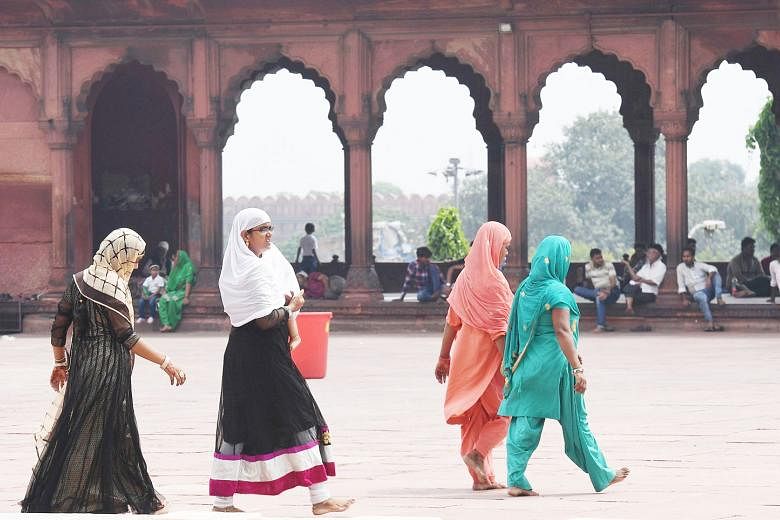NEW DELHI • India's top court yesterday banned a controversial Islamic practice that allows men to divorce their wives instantly, ending a long tradition that many Muslim women had fiercely opposed.
The Supreme Court ruled that the practice of "triple talaq", whereby Muslim men can divorce their wives by reciting the word talaq (divorce) three times, was both unconstitutional and un-Islamic.
Victims, including Ms Shayara Bano, whose husband used triple talaq to divorce her by letter in 2015, had approached India's highest court to ask for a ruling.
A panel of five judges from India's major faiths - Hinduism, Christianity, Islam, Sikhism and Zoroastrianism - said triple talaq was "not integral to religious practice and violates constitutional morality". It was "manifestly arbitrary" to allow a man to "break down (a) marriage whimsically and capriciously", they said.
"What is sinful under religion cannot be valid under law."
-
Talaq by letter
-
In one case, Ms Shayara Bano was given "triple talaq" - an Islamic practice in India that allows men to divorce their wives instantly - by her husband by letter in 2015.
They had been married for nearly 15 years.
Ms Bano approached India's highest court to ask for a ruling. She said she was abused, both physically and mentally, as her husband wanted more dowry - money or goods given by a bride's family at the time of marriage.
Ms Bano, who suffered a nervous breakdown after her divorce, said it was a "historic occasion" for Muslim women. "I appeal to the people to not politicise this issue and to accept the Supreme Court's verdict on triple talaq," she told reporters outside the court.
"I have felt the pain when family breaks. I hope no one has to go through this situation in future."
India, which is officially secular, is one of the few nations that legally permitted the practice, which is banned in neighbouring Bangladesh. Many other Muslim countries have banned the practice, including neighbouring Pakistan and conservative Saudi Arabia.
India allows religious institutions to govern matters of marriage, divorce and property inheritance in the multi-faith nation, and had enshrined triple talaq as a legal avenue for its 180 million Muslims to end unions. But the Hindu nationalist government of Prime Minister Narendra Modi backed the petitioners in this landmark case, declaring triple talaq unconstitutional and discriminatory against women.
Mr Modi's ruling Bharatiya Janata Party (BJP) has long pushed for a uniform civil code governing Indians of all religions to be enforced.
Women and Child Development Minister Maneka Gandhi said the ruling was a "giant step for women".
"Divorce is a very, very important part of a woman's life," she said in an interview with the News18 TV. "This makes her as equal as she is entitled to be under the Constitution."
Opposition to the law helped forge an unlikely coalition of Muslim women with Mr Modi and the BJP - which wanted the law quashed - and pitted it against Muslim groups that say the state has no right to interfere in religious matters.
Some fear the Hindu majority is trying to limit Islamic influence in society. Muslims make up about 14 per cent of India's 1.3 billion people.
The All India Muslim Personal Law Board, a grouping of Islamic organisations, had opposed any efforts to ban triple talaq. The board said the practice was "reprehensible" but should not be a matter for the courts or the government.
Some Islamic scholars say there is no mention of instant divorce in the Quran, which instead details a different process based on mediation.
AGENCE FRANCE-PRESSE, REUTERS

